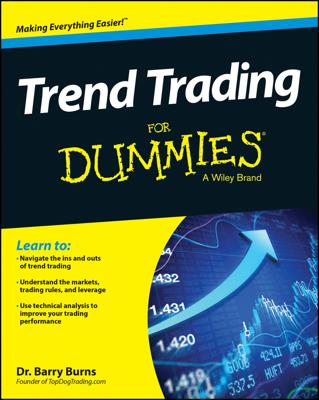Trading options is like anything else in the world. If you want to be successful you have to work at it, you need a plan, and you need a good set of rules to keep yourself out of trouble. There are some rules that are good for any type of trading. Others are more specific to options.
As you become more experienced, you will develop your own set of rules. But at the end of the day, or perhaps at the beginning of your options experience, the rules in this article are an excellent place to start. The rules are sorted into three categories: managing your risk, thinking of trading as a business, and managing your emotions.
Managing your risk
Risk management can be a fuzzy term. Here are three rules that will help you manage risk:
Know your own risk profile: This may seem silly. But if you get nervous waiting for the bus on a sunny day, maybe trading options isn’t for you.
Have a plan: Never enter a trade without knowing everything you need about it and without an understanding of how much you can lose if things go against you.
Test your strategies before deploying them: Don’t be ashamed to paper trade before risking your money. Impatience and inexperience are a bad combination
You can prepare for market-moving events by researching the market’s past responses to them and by paper trading different strategies during similar periods in the future.
Thinking of trading as a business
If you think you will make money every time you make a trade, you’re going to be an unhappy trader. Trading is about being consistent, disciplined, and understanding that method and attention to detail will eventually lead to success. In other words, think of trading as a business. With that in mind, consider the following four rules:
A successful trade isn’t necessarily profitable: More important is a trade where you followed the rules. If you have a good set of rules and you follow them, the odds of success are in your favor.
Have enough money available to trade: If you don’t have a large enough stake, you won’t stay in the game long enough.
Use everything you can to maximize your success: Become a good market analyst and use every tool at your disposal, both technical and fundamental.
Follow your trading plan: Develop a good plan and trade when it tells you to do so, both in getting in and getting out of positions. Second guessing your trading plan won’t do you any good. If you paper traded your strategies and they worked, deploy them in real time. You may be right or wrong, but you have to jump in.
Managing your emotions
If you think you won’t ever lose your cool while trading, you’ve got a sad set of experiences awaiting you. Consider the fact that you could have a few thousand dollars at stake in the market at any time and that it’s just you against the world. Those kinds of odds, even if you’re really good, will eventually deliver some heartburn, especially when a major external event increases the market’s volatility and things go against you. Before you blow a gasket, consider the following four rules:
Expect setbacks: You can’t beat the market all the time. A good trader wins 30-50% of the time at best. The market is trying to take your money. It will win some of the time. That’s life.
Plan your market time: Optimize your exposure, and your results will improve. If Thursdays and Fridays are your days off from your day job, plan to trade options during those days. Prepare for those days during the week by following the market and considering some potential trades to put on. Be ready to go on Thursday morning with a few plausible scenarios and executable trades.
Get into a good review routine: Evaluate your successes and your failures. Keep good notes. Review them regularly. Look for similarities between your current experiences and past experiences.
Monitor the effects of your trading on your time away from trading: If you can’t transition from trading to real life, you may have a problem. Review your routine. Spend some time paper trading. Or maybe just take some time away from trading.
If you are not enjoying the process, either trading is not for you or you haven’t quite found the formula. Taking a step back and making some changes is probably in order.

